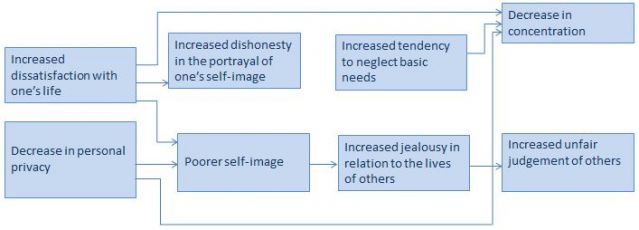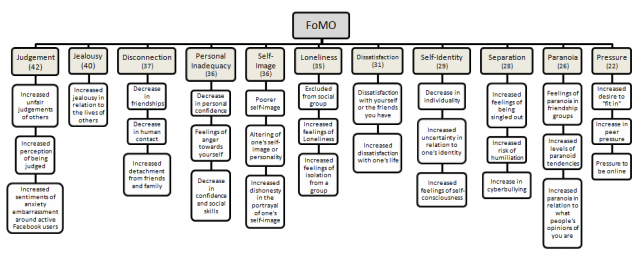Kijun Times
Kijun Times 는 교내 영어잡지,신문 동아리로 다양한 주제에 관한 이슈로 원고를 작성하며 영어 잡지를 만드는 동아리입니다.
매년 잡지 출판뿐만 아니라 자신의 진로와 관련된 개인기사, 모둠기사를 작성함으로써 영어 실력향상은 물론 주제에 제한이 없기 때문에 다양한 진로에 접목 가능합니다.
We are looking for a new journalist for The KIJUN TIMES.
Anyone can be a journalist for The KIJUN TIMES.

Facebook and the ‘Fear of Missing Out’ (FoMO) |
|||||
|---|---|---|---|---|---|
| 이름 | 김유진 | 등록일 | 15.11.18 | 조회수 | 309 |
|
Within the last decade, social networking sites have become increasingly important tools for social interaction and communication between people. These platforms allow us to create semi-public or public profiles and to observe and examine inventories of online relationships made by ourselves and others. With experience and time, the perception of Facebook and other social networking sites as accepted forms of communication is becoming less foreign to us and we now communicate seamlessly, frequently, and with various levels of awareness of the impact upon us and those we are connected with. The new generation of technology users are entering into an intimate relationship with these, as yet, immature and evolving technologies. As online social networking becomes more prevalent, we provide more and more access to the details of our lives and, without fully understanding the consequences, we allow social media and a virtual network of "friends" influence our experience and behavior. Lately, an acronym emerging from online communications is becoming more and more commonplace: "FoMO" (fear of missing out), a previously humorous slang word, is being used in everyday conversation; companies are recognizing the importance of FoMO for their marketing strategy; opinion pieces on the phenomenon appear in newspapers and magazines around the world, and in August 2013 the Oxford English Dictionary even proposed a definition of FoMO. FoMO, we are told, involves "Anxiety that an exciting or interesting event may currently be happening elsewhere, often aroused by posts seen on a social media website." Essays and blog posts on Psychology Today and PsychCentral feature opinions on FoMO, suggesting a growing academic interest in the concept. However, there has been very little substantive research that has focused directly on FoMO. FoMO, arising from the immediacy and ubiquity of social media, is perceived as having mainly negative outcomes. However, to date, only one study has focussed directly on efforts to measure FoMO and its consequences. Przybylski and colleagues (2013) defined FoMO as: "a pervasive apprehension that others might be having rewarding experiences from which one is absent...the desire to stay continually connected to what others are doing." The study reported that young people, particularly young males, exhibited high levels of FoMO. Notably, those who reported high levels of FoMO also scored low on satisfaction of basic psychological needs (autonomy, competence and relatedness). High levels of FoMO were also associated with lower levels of life satisfaction and positive mood; and those who scored high in FoMO were more likely to use social media immediately before sleep, upon waking, and during both meal times and their university lectures. One major problem with both the Oxford Dictionary definition of FoMO and the measure of FoMO developed by Przybylski and colleagues is that the definition and understanding of FoMO is not grounded directly in the views of technology users. We’ve started to adopt a new approach to construct definition and scale development in psychology, specifically, by engaging directly with stakeholders and using collective intelligence methods to ground our understanding of key phenomena. In our research, we were interested in exploring the possible negative consequences of social media use, and how these negative consequences related to each other in the context of FoMO. To investigate this, we carried out four collective intelligence sessions with a total of 76 Irish University students, using Interactive Management, a systems thinking approach to collective intelligence. Participants in each of the four groups were presented with a short description of FoMO and were asked the following question: “What are the negative consequences of FoMO?” After a period of idea generation, clarification, and voting, the top-ranked negative consequences of FoMO were highlighted. Across the four collective intelligence sessions, in excess of 80 distinct consequences of FoMO were selected via voting. Some of the negative consequences of FoMO reported by our participants included: Increased feelings of being singled out; increased dishonesty in the portrayal of one's self-image; increased feelings of personal inadequacy; increased feelings of loneliness; increased unfair judgements of others; increased dissatisfaction with one's life; increased detachment from family and friends; and increased jealousy in relation to the lives of others. In the next stage of their collective intelligence work, students discussed the possible interdependencies between these negative consequences, using our matrix-structuring, model-building software. Questions were presented in the following format: Does negative consequence A significantly aggravate negative consequence B? Through a process of facilitated dialogue and reasoning and with the assistance of the software, each group generated a problematique, or a structural model, of the interdependencies (see Fig.1 for an example). The structural model is to be read from left to right, with relational lines indicating ‘significantly aggravates’.  Source: Cormac Ryan, Owen Harney, Michael Hogan Figure 1. Structural Model of FoMO consequences For the participants in this Interactive Management session, "Increased dissatisfaction with one's life" and a "Decrease in Privacy" emerge as the primary negative consequences of FoMO. Both of these negative consequences directly and significantly aggravate a "Poorer self-image" at the second stage of the structural model and also a "Decrease in concentration," at the fourth stage. Further, the primary negative consequence, "Increased dissatisfaction with one's life," significantly aggravates an "Increase in the dishonesty in the portrayal of one's self-image." "Poorer self-image" significantly aggravates "Feelings of jealousy in relation to the lives of others," which in turn aggravates “Unfair judgements of others.” Furthermore, at the third level of the structural model, "Increased tendency to neglect basic needs" significantly aggravates "Decrease in concentration." Following data collection and the interpretation of the structural models, using meta-analysis across all four sessions, we identified a number of high level themes or categories of FoMO consequences. Key themes in relation to the negative consequences of FoMO included: Pressure, Paranoia, Separation, Self-identity problems, Dissatisfaction, Loneliness, Negative Self-Image, Personal Inadequacy, Disconnection, Jealousy, and Judgement. The negative consequences within the Judgement category received the highest number of votes across the four groups, with 42 votes cast in this category (see Fig.2).  Source: Cormac Ryan, Owen Harney, Michael Hogan Figure 2. The consequences of FoMO. Note: Numbers in parenthesis in thematic category headings indicate number of votes received by the category Conclusion With 1.49 billion users, Facebook is the most popular social networking site in the world. In a recent survey conducted by Thinkhouse, it was found that 35% of all Facebook users in Ireland are under the age of 25, with 98% of them using the application on their smartphones; 90% check their phone "when they wake up," 87% "on public transport" and 84% "while watching T.V." (Thinkhouse, 2014). The new wave of social networking on Facebook, has been described as "a great uncontrolled experiment on kids" (Shifrin, 2011). The psychological impact of Facebook use and FoMO is slowly revealing itself. Our study is the first to use Interactive Management to explore the interdependencies between negative consequences of FoMO identified as significant by Facebook users. Considering the logic of our four collective intelligence groups, it appears that Facebook usage can have a variety of negative consequences and, importantly, these outcomes are related to one another in a system of negative consequences. Notably, a decrease in personal privacy, increased detachment from friends and family, increased feelings of loneliness, and dissatisfaction with one's life, are all fundamental drivers of other negative consequences of FoMO. These negative consequences are, in turn, related to and significantly aggravate increased unfair judgements of others, change in personality, paranoia, jealousy and decreases in concentration. Given the range and pervasiveness of the negative psychological consequences that users are reporting in our study, one must wonder whether the designers of Facebook would have rolled out the platform in its current design format if psychologists had been included in the original design team? Had the developers used a scenario-based design approach to development, mapping user goals and experiences in an iterative, interactive design process and importing psychological science to inform key design decisions, the Facebook we know today would look very different. Ultimately, from a scenario-based design perspective, there is a system of negative influence resulting from Facebook usage that needs to be considered as part of the design of future social networking sites. The question is, how do we overcome these negative consequences in the design of software solutions in the future? Our belief is that technologists need to slow down in their rush to develop the ‘next big thing’ and consider the impact of their creations on user experience and the social-emotional development of the global population. |
|||||
| 이전글 | Here's How to Finally Love Math With Your Child |
|---|---|
| 다음글 | 'An image can be stronger than an army': The ads that shook society |